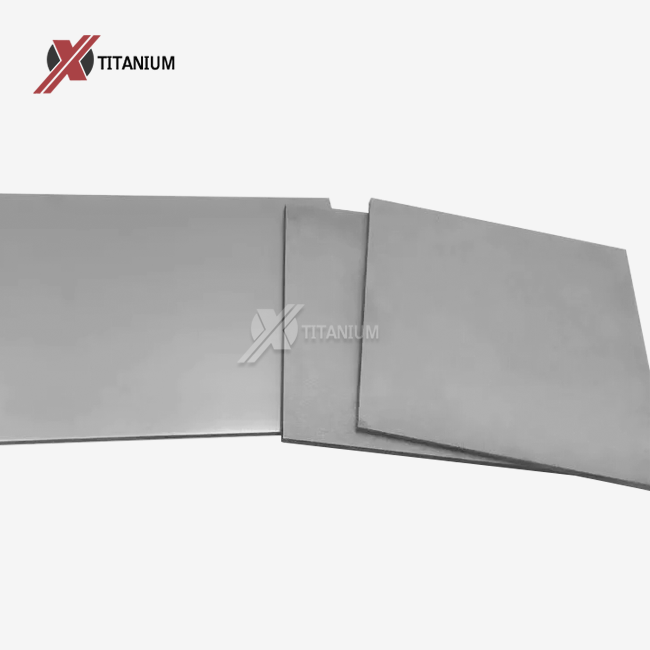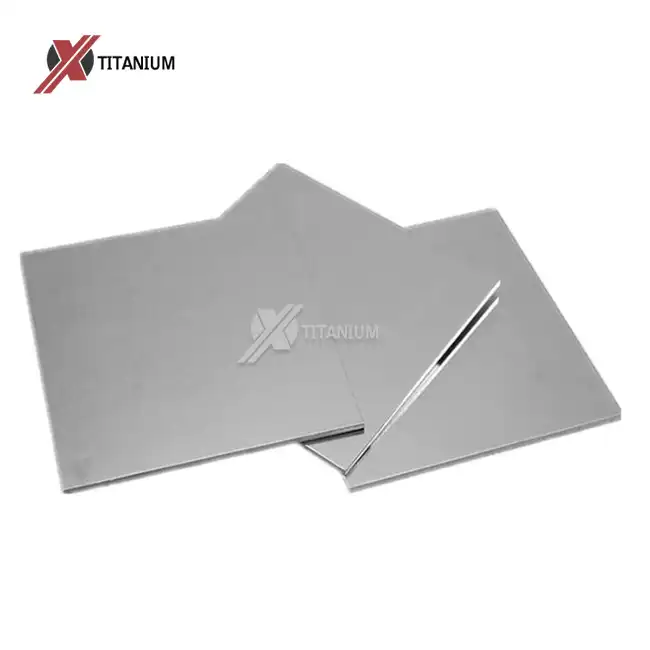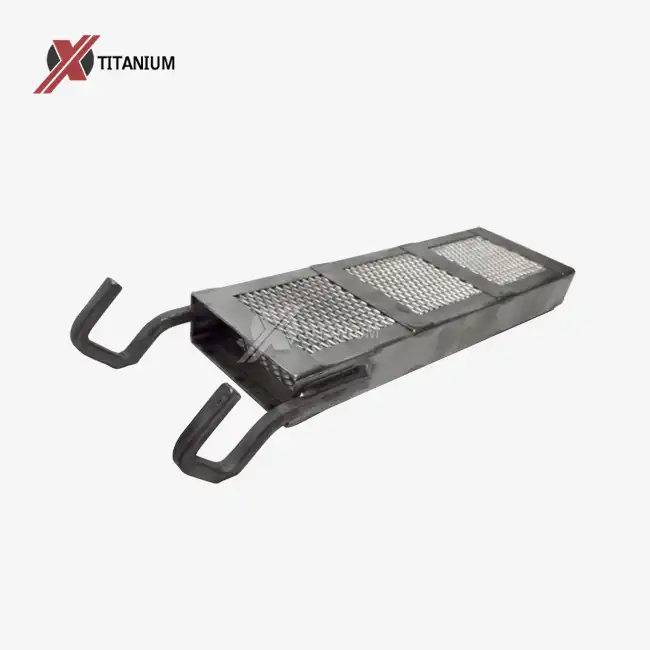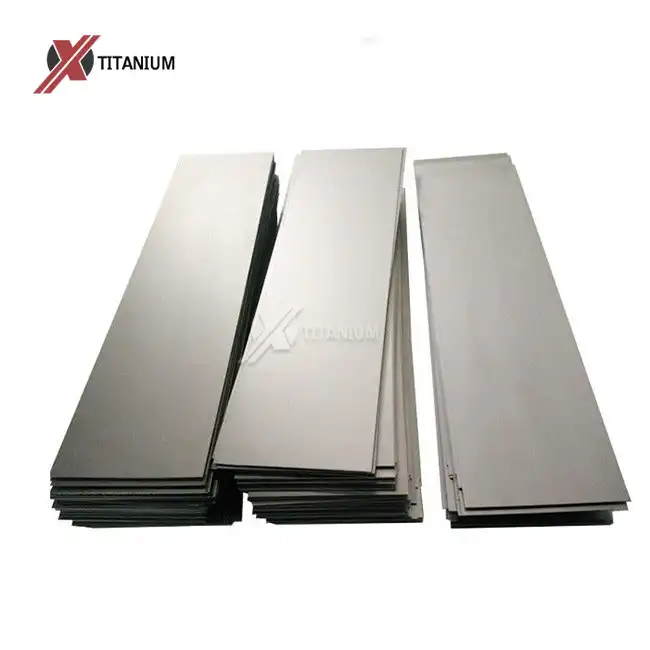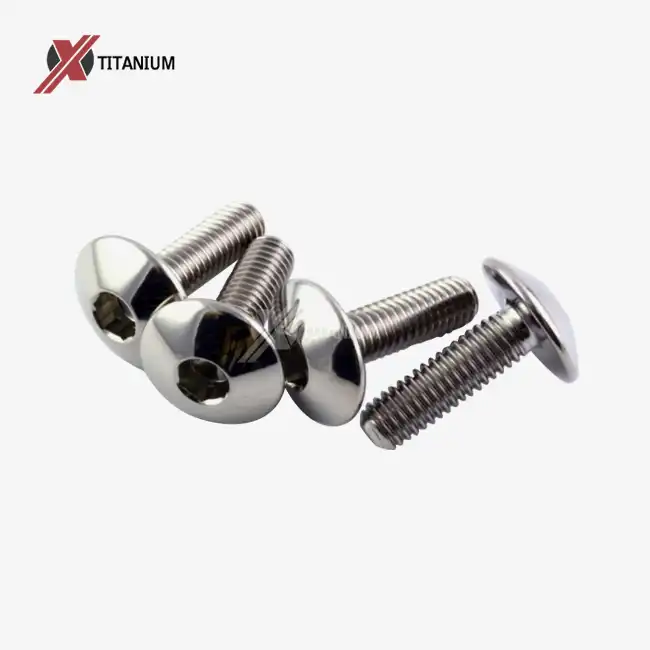Introducing Grade 2 Titanium Plate Properties
Grade 2 titanium plate is renowned for its exceptional combination of strength, corrosion resistance, and formability. As one of the most versatile titanium grades, it finds applications across numerous industries. Let's delve into the key properties that make grade 2 titanium plate a sought-after material:
Chemical Composition
The chemical composition of grade 2 titanium plate is tightly controlled to ensure consistent performance. According to ASTM B265 standards, it consists of:
- Titanium: Balance
- Carbon: Max 0.08%
- Iron: Max 0.30%
- Oxygen: Max 0.25%
- Nitrogen: Max 0.03%
- Hydrogen: Max 0.015%
This composition results in a material that is nearly pure titanium, contributing to its excellent corrosion resistance and biocompatibility.
Mechanical Properties
Grade 2 titanium plate boasts impressive mechanical properties that make it suitable for a wide range of applications:
- Tensile Strength: 345 MPa (minimum)
- Yield Strength: 275 MPa (minimum)
- Elongation: 20% (minimum)
- Modulus of Elasticity: 110 GPa
These properties ensure that grade 2 titanium plate can withstand significant stress while maintaining its structural integrity.
Physical Characteristics
The physical characteristics of grade 2 titanium plate contribute to its versatility:
- Density: 4.51 g/cm³
- Melting Point: Approximately 1665°C (3029°F)
- Thermal Conductivity: 16.4 W/m·K at 20°C
- Electrical Resistivity: 56 µΩ·cm at 20°C
These properties make grade 2 titanium plate an excellent choice for applications requiring low weight, high temperature resistance, and moderate electrical conductivity.
Applications of Grade 2 Titanium Plate
The unique combination of properties exhibited by grade 2 titanium plate makes it suitable for a diverse range of applications across various industries:
Chemical Processing Industry
In the chemical processing industry, grade 2 titanium plate is extensively used due to its exceptional corrosion resistance. It's commonly found in:
- Chemical reactors
- Heat exchangers
- Storage tanks
- Piping systems
The material's ability to withstand harsh chemical environments, including chlorine and saltwater, makes it indispensable in this sector.
Marine and Offshore Applications
The marine industry benefits greatly from grade 2 titanium plate's corrosion resistance in saltwater environments. Applications include:
- Desalination plants
- Offshore oil and gas platforms
- Marine hardware
- Boat propellers and shafts
Its resistance to pitting and crevice corrosion in seawater makes it an ideal choice for these applications.
Medical and Biomedical Field
Grade 2 titanium plate's biocompatibility and non-toxic nature make it perfect for medical applications such as:
- Surgical implants
- Dental implants
- Medical instruments
- Prosthetics
The material's ability to osseointegrate (bond with bone) makes it particularly valuable in orthopedic and dental implants.
Manufacturing Processes for Grade 2 Titanium Plate
The production of high-quality grade 2 titanium plate involves several sophisticated manufacturing processes:
Cold Rolling
Cold rolling is a process used to reduce the thickness of grade 2 titanium plate while improving its surface finish and mechanical properties. This process involves passing the titanium plate through a series of rollers at room temperature, which work-hardens the material and enhances its strength.
Hot Rolling
Hot rolling is performed at temperatures above the recrystallization temperature of titanium. This process allows for significant thickness reduction and shaping of the grade 2 titanium plate. Hot rolling is often used for initial forming before cold rolling is applied for final dimensioning and property enhancement.
Annealing
Annealing is a heat treatment process that relieves internal stresses in grade 2 titanium plate, improving its ductility and workability. This process involves heating the material to a specific temperature, holding it for a set time, and then cooling it slowly. Annealing can be crucial for restoring the material's properties after cold working.
Surface Finishing
Various surface finishing techniques can be applied to grade 2 titanium plate to meet specific requirements:
- Bright finishing for a smooth, reflective surface
- Polishing for enhanced aesthetics and reduced friction
- Pickling to remove surface impurities and create a matte finish
- Acid cleaning for thorough removal of contaminants
- Sandblasting for a textured, non-slip surface
These finishing processes not only improve the appearance of the grade 2 titanium plate but also enhance its performance in certain applications, making it essential for grade 2 titanium plate suppliers to provide options that meet diverse customer needs.
Conclusion
Grade 2 titanium plate, governed by ASTM B265 standards, offers a unique combination of properties that make it invaluable across various industries. Its excellent corrosion resistance, strength-to-weight ratio, and biocompatibility have cemented its position as a versatile and reliable material. From chemical processing to marine applications and medical devices, grade 2 titanium plate continues to play a crucial role in advancing technology and improving product performance. As manufacturing processes evolve and new applications emerge, the importance of understanding and adhering to ASTM B265 standards for grade 2 titanium plate remains paramount for ensuring quality, consistency, and reliability in this exceptional material.
At Baoji Chuanglian New Metal Material Co., Ltd., we specialize in manufacturing high-quality grade 2 titanium plate that meets and exceeds ASTM B265 standards. With over a decade of experience in titanium product manufacturing and research, we're committed to providing top-notch titanium solutions for your specific needs. Whether you're in the petrochemical, marine, medical, or aerospace industry, our grade 2 titanium plate can meet your exacting requirements. For more information or to discuss your titanium needs, please contact us at info@cltifastener.com or djy6580@aliyun.com.
Frequently Asked Questions (FAQs)
What are the main differences between grade 2 titanium plate and other titanium grades?
Grade 2 titanium plate offers a balance of strength, corrosion resistance, and formability, making it suitable for a wide range of applications. It's less alloyed than grades like Grade 5, making it more appropriate for industries such as medical and marine engineering.
Can grade 2 titanium plate be customized for specific applications?
Yes, grade 2 titanium plate can be customized in terms of size, thickness, and surface finish to meet specific requirements. Many grade 2 titanium plate suppliers offer tailored solutions.
What quality tests are typically performed on grade 2 titanium plate?
Common quality tests include hardness tests, bending tests, and hydrostatic tests. These ensure the material meets the required mechanical properties and performance standards.
References
1. ASTM International. (2020). "ASTM B265 - Standard Specification for Titanium and Titanium Alloy Strip, Sheet, and Plate." ASTM International, West Conshohocken, PA.
2. Boyer, R., Welsch, G., & Collings, E. W. (1994). "Materials Properties Handbook: Titanium Alloys." ASM International.
3. Lutjering, G., & Williams, J. C. (2007). "Titanium." Springer-Verlag Berlin Heidelberg.
4. Donachie, M. J. (2000). "Titanium: A Technical Guide." ASM International.
5. Peters, M., Kumpfert, J., Ward, C. H., & Leyens, C. (2003). "Titanium Alloys for Aerospace Applications." Advanced Engineering Materials, 5(6), 419-427.
